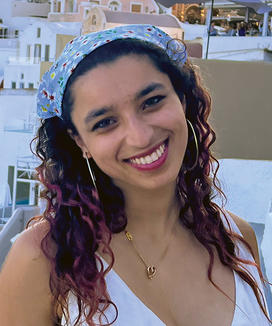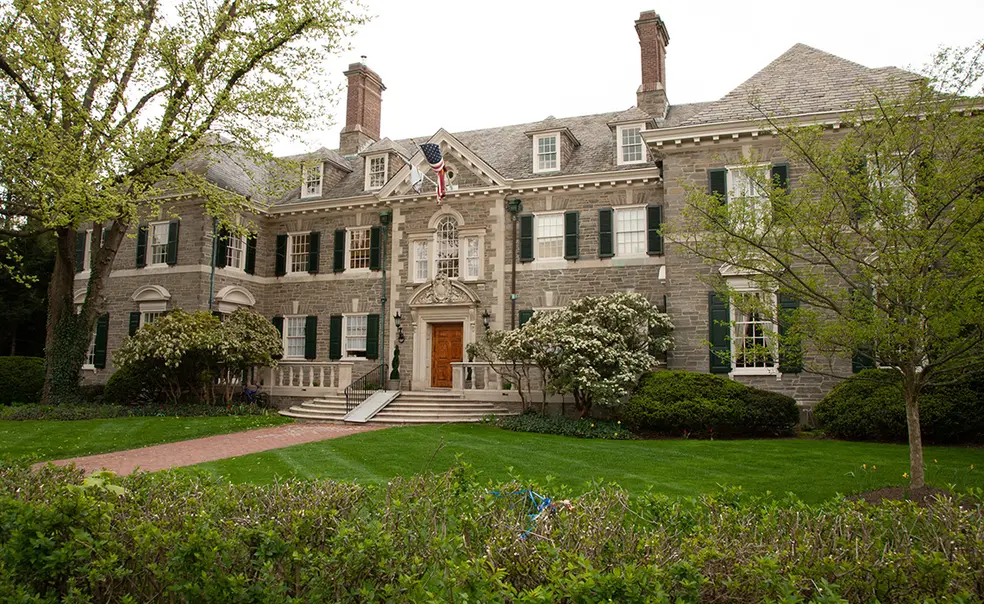Professor’s Visit for Lunch Sparks Guest Policy Debate
The Charter Club episode, now resolved, featured varying views of intolerance

On Feb. 14, Matthew Wilson ’24 hosted Professor Robert George as a guest for lunch. Wilson described the lunch as “pleasant and uneventful.” But students at his eating club, Charter, complained, saying that they felt “caught off guard” by George’s presence, and wanted “the right not to be in that space.” More than a month later, Charter President Anna Johns ’25 informed students of a new guest policy in a club-wide group chat, writing that people who were not family or friends needed approval from club officers and staff before entering the club during mealtimes. Johns stressed that the guest policy was enacted to maintain an “inclusive environment.”
George, dubbed by The New York Times Magazine as the “reigning brain of the Christian right,” has laid the intellectual groundwork for the removal of same-sex marriage, abortion rights, and transgender rights. The GLAAD Accountability Project lists him as among “individual public figures and groups using their platforms to spread misinformation and false rhetoric against LGBTQ people, youth, and allies.” George served as the chairman for the National Organization for Marriage and published the 2012 book What is Marriage? Man and Woman: A Defense. George is also known for his anti-trans rhetoric, tweeting messages like, “There are few superstitious beliefs as absurd as the idea that a woman can be trapped in a man’s body ...”
Charter, like many spaces on campus, has a sizeable population of queer students. The club has a queer affinity group chat with 45 people who identify as queer, according to a member of the chat, which would account for roughly 20% of the club’s overall membership. “[Professor George’s] ideologies and teachings essentially deny or contradict the very identities that people in the club hold,” said one Charter junior who identifies as queer and requested anonymity out of concern for retribution. “People wouldn’t feel comfortable having him in the club because his political, social, and moral ideologies dictate that people who deviate from heterosexual and cisgender norms do not deserve the right to exist, or that their existence is morally wrong and reprehensible.”
Wilson wrote a Daily Princetonian op-ed in response to the policy change, arguing that campus organizations should not “surrender to the proponents of illiberalism and ideological intolerance in the way that Charter’s leadership did here.”
The self-proclaimed “unWoke/uncancellable” George took to X to decry the hypocrisy of the club’s new policy, where he has an honorary membership, writing, “So … Students have to give notice to bring me as a guest for lunch at a club … that I myself belong to?”
The day after the op-ed’s publication, Rodrigo Menezes ’13, the chairman of Charter’s Board of Governors, sent an email to members that essentially voided the policy articulated by Johns. He wrote that the club was “considering a guest pre-registration policy” to “allow members to see the comings and goings of the Club, so that they could make alternative plans if they wished,” but had decided against it. Menezes stressed that the policy was not intended to prevent guests from coming to the club.
The backlash surrounding Charter’s decision to implement and then remove the new guest policy (or perhaps just consider implementing, as Menezes’ email implied) is indicative of a larger notion that Princeton’s campus is becoming increasingly intolerant of conservative voices.
Students continue to interact with faculty at eating clubs, and many students host professors and administrators for meals. The publicity surrounding George’s visit to Charter might have caused some clubs to increase their communication when faculty have visited. For example, on April 8, the president of Terrace emailed the club membership to inform them that President Christopher Eisgruber ’83 would be coming for lunch the following day. Students were quick to respond to this message in a club-wide group chat, asking for more details. Club leadership responded saying that he was just having lunch with a member, and that they wanted to give everybody a heads-up. Informing students of guests, rather than screening them, seems to be the preferred pathway forward.
Nearly a month after the dust settled, George reflected on the experience, writing to PAW that “I believe that the more social interaction between faculty and students at Princeton, the better.” Charter’s removal of the policy, alongside a gracious apology from Menezes, has proved satisfactory.
“As far as I’m concerned,” he wrote, “the matter is closed.”










No responses yet